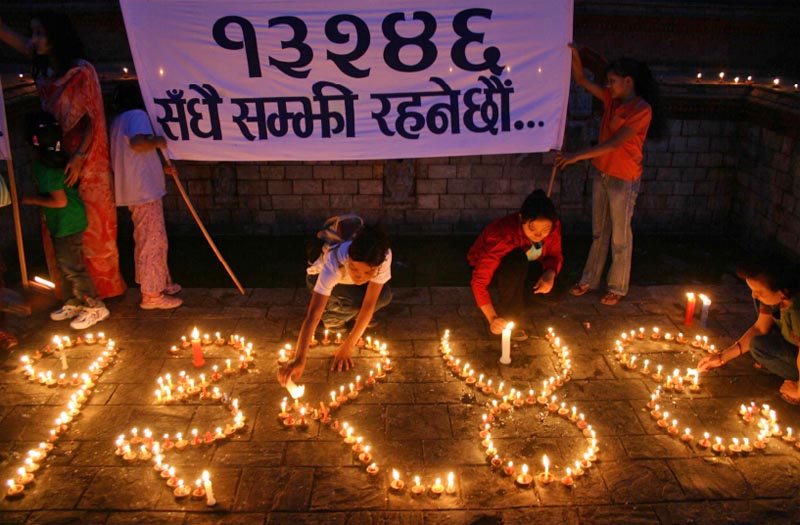TRC may shelve hundreds of war-era complaints
Kathmandu, August 11
Hundreds of conflict-era cases are likely to be shelved without conducting any inquiry.
The Truth and Reconciliation Commission has finalised a procedure to select war-era cases that can be put on hold on several grounds, including lack of evidences and inadequate details.
Many serious rights violation complaints are unlikely to be examined, as the guideline states that the cases of rights violation within Maoist groups or government-security forces won’t be considered for investigation.
Likewise, cases that occurred before the beginning of Maoist insurgency on 14 February 1996 and after the conflict ended with the signing of the Comprehensive Peace Agreement on 21 November 2006 won’t be inquired, according to TRC Chairman Surya Kiran Gurung.
Even insurgency-era cases won’t be examined if these were not directly related to clashes between Maoist insurgents and security forces.
Over 55,000 complaints about human rights violations during the Maoist insurgency have been lodged at the TRC that is categorising which cases should be investigated and which should be disposed of.
Complaints such as use of coercive tactics to force resignation, involvement in insurgency, confession of leaking information, threats, psychological torture and extortion will not be considered for further investigation.
TRC member Madhabi Bhatta, who was not present during the meeting that had endorsed the guideline last month, has demanded that the document should be revised. She said hundreds of genuine victims would be denied of justice if the provision was implemented.
“It is our responsibility to collect necessary evidences and examine the cases,” she told The Himalayan Times, asking, “If we shelve complaints just because of inadequate evidences or details, what will we do then?”
Chairman Gurung said TRC was a mechanism to take up only specific conflict-era cases where both the Maoist rebels and states forces were involved. Other regular cases shall be dealt through regular mechanisms such as National Human Rights Commission and courts, he added.
According to him, even the shelved cases could be considered for further investigation, if the victims’ side brings adequate evidences or details. But Bhatta argued that once such cases were deferred, it means they would be swept under the carpet.
TRC has already begun short-listing of cases whether to shelve them or consider for further investigation. Among some 2,000 complaints that have been short-listed so far, 5-10 per cent are likely to be shelved, a source told this daily.
It’s further understood that even cases such as forcible use of children in insurgency will be put on hold, as the cases happened within the Maoist side only, and not between the insurgents and the state forces.
Rights campaigner Prof Kapil Shrestha said intention behind putting serious complaints on hold, without examining them or verifying their validity was akin to letting perpetrators go scot free and denying justice to victims.
He even questioned the very foundation and intention of TRC and alleged that it was not set up to ensure justice to the victims, but was merely an eyewash to sway the international community.






